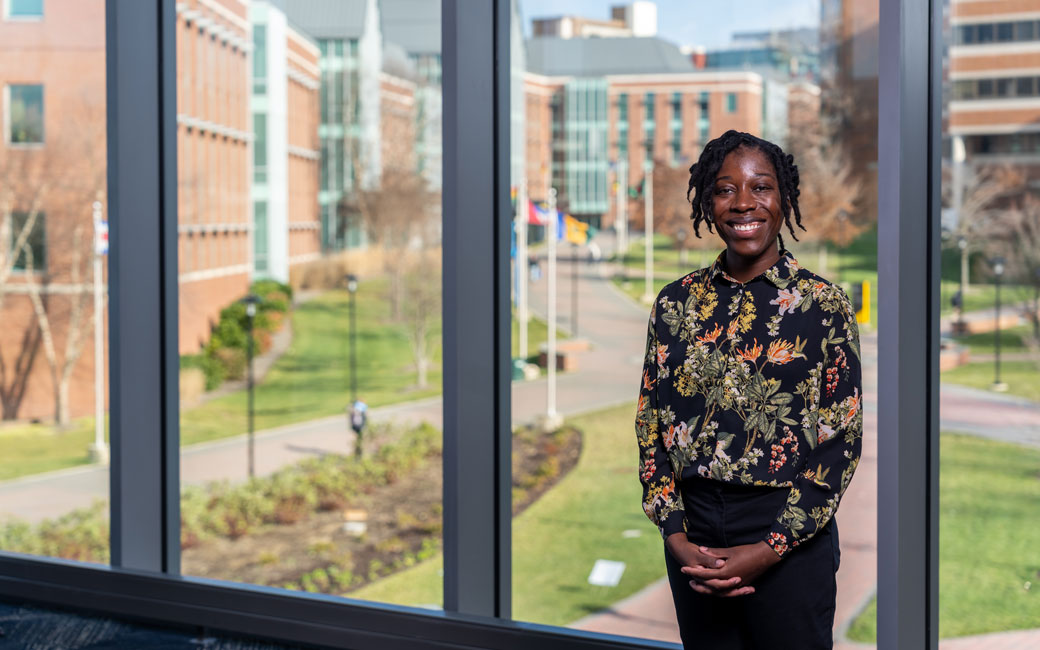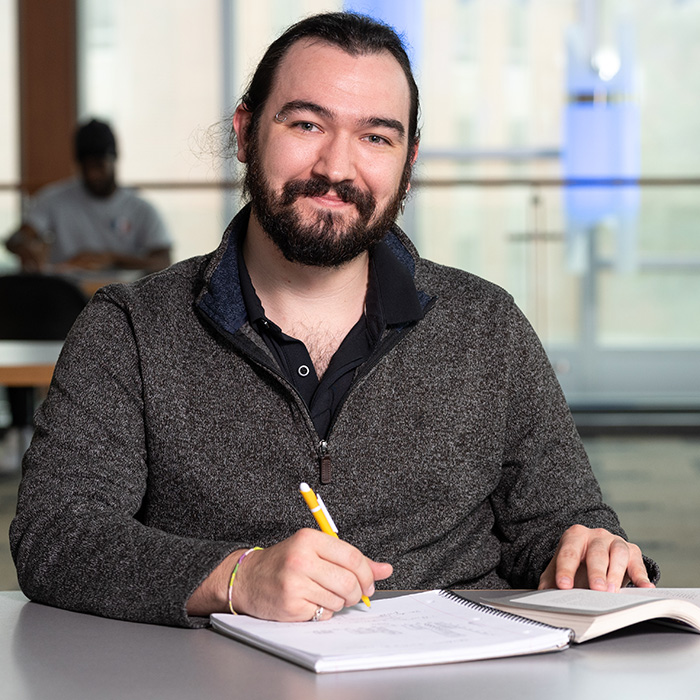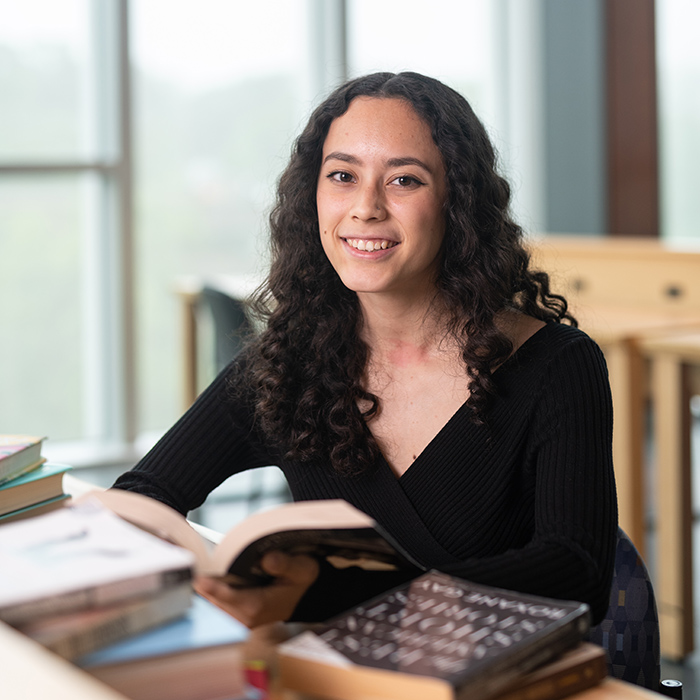Why Study English
Prepare for careers in law, advertising, education, intelligence work, publishing, public relations, and library and information services.
Sherita Roundtree, Ph.D., shares how mentorship, collaboration can inspire confidence

Assistant Professor Sherita Roundtree’s academic experience can be best described through a lens of mentorship. Before beginning her career at Towson University, her journey was invaluably influenced by the mentors who encouraged her to reach for new opportunities.
As an undergraduate at Salisbury University, Roundtree studied English for secondary education. She connected with the director of the school’s multicultural program, Vaughn White, who unknowingly helped her open the door to new opportunities, starting with becoming a writing tutor at the university’s writing center.
It was through the writing center that Dr. Nicole Munday, the writing center director, encouraged Roundtree—a first-generation college student—to apply for opportunities she’d never considered and ones she desired but may have hesitated to reach for on her own.
Roundtree and Munday grew close and collaborated on research projects together. When Roundtree considered pursuing a master’s degree, she and Munday reached out to writer and then-director of the writing center at the University of Nebraska-Lincoln (UNL), Frankie Condon, who encouraged Roundtree to apply.
Roundtree received her master’s in English, composition and rhetoric from UNL, which introduced her into feminist rhetoric, Black rhetoric and Black linguistic pedagogies. Her experience in this program pushed her to pursue this specific field of study in her doctorate at Ohio State University, with mentor and dissertation chair, Beverly Moss, rallying at her side.
“If I didn’t have those people step in, I wouldn’t be in this position,” she says.
Now an educator, Roundtree feels a responsibility to provide mentorship to students. “Working with grad students, I tap into a lot of what I have experience in, in ways that guide me to support them: how my mentors showed up and still show up for me,” she says.
Community literacy has been a singular passion of Roundtree’s for many years.
With the desire to develop a community literacy center, Roundtree applied for and won the Early Career Educators of Color Leadership Award awarded by the National Council of Teachers of English (NCTE). It supports early career teachers of color as they build accomplished teaching careers in literacy education through invaluable mentorship and networking opportunities with other scholars and educators of color.
“It is really important because I am able to connect with other scholars and teachers of English who are committed to supporting students and have very critical, nuanced conversations about what it means to write and read in classrooms,” Roundtree says.
Through the NCTE award, Roundtree established the Greater Baltimore Community Literacy Collective (GBCLC), which builds community through forming intersections between the arts and literacy.
“ Working with grad students, I tap into a lot of what I have experience in, in ways that guide me to support them: how my mentors showed up and still show up for me. ”
She is working to build a network for the vibrant Baltimore arts community—something that will benefit local artists, organizations and TU students alike. The collective seeks to address how artists can get their writing needs met through uniquely specific approaches to identifying and writing for their target audiences.
Roundtree is also looking at how TU students can gain workplace experience writing for real audiences.
“Being aware of rhetorical situations and how to reach specific audiences through writing is so beneficial to students. There is a whole lot of accountability and room to challenge yourself to write for someone when they are in front of you or you have been in conversation with them,” she says.
In fall 2024, Roundtree plans to launch pilot collaborations with local organizations for the collective. She will also present the evolution of the collective thus far at the NCTE Conference.
At TU, Roundtree teaches first-year, upper-level and graduate students. Much of her time is devoted to teaching, but she is also committed to service at TU and nationally, beyond her work with the collective.
Roundtree is part of TU’s Professional Writing Faculty Committee, English Curriculum Committee and the Technology Committee for the College of Liberal Arts. She is also an affiliate faculty member with TU's Global Humanities M.A. program. Nationally, Roundtree is acquisitions editor for the Community Literacy Journal and on several executive boards, including the Black Caucus for NCTE/CCCC Conference on College Composition and Communication and the Coalition of Scholars in the History of Feminist Rhetoric and Composition.
Roundtree’s extensive involvement in community boards, organizations and professional development within her field is a testament to her appetite for knowledge and continual growth. Through her service work and the GBCLC, she aims to further support her students as her mentors did for her.
“Having someone who can speak to your experience is important,” Roundtree says. “Being able to echo the voices of black women who have informed who I am, including my mom, is not only beneficial to me as a teacher but keeps me accountable on why I’m doing this work and holds me to those standards that they have set.”

From college student to college instructor, Alexander Eikenberg has set the bar high for himself.
More about Alexander
Under the guidance of inspiring professors, English and psychology major Jen Medrano finds her voice and self-publishes her first novel.
More about Jennifer